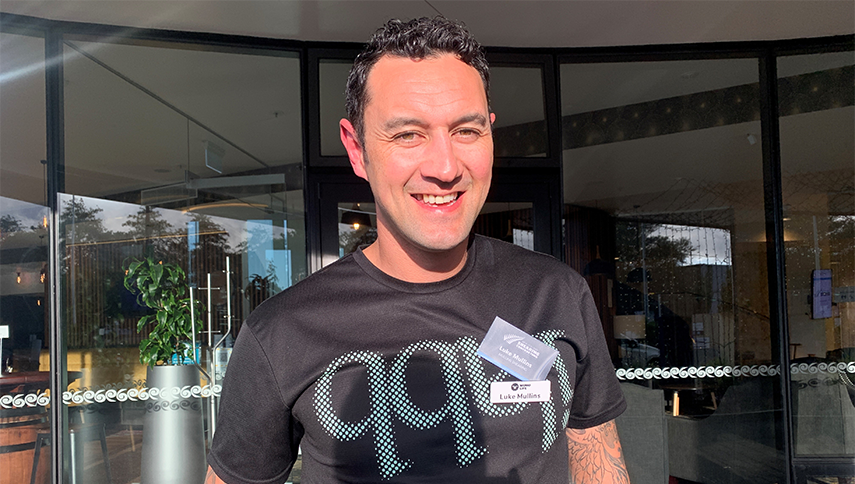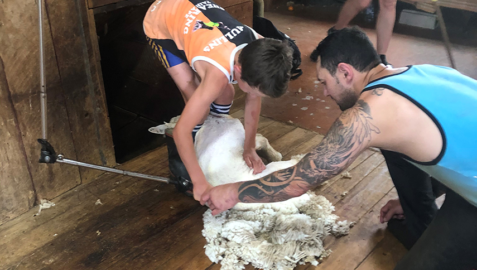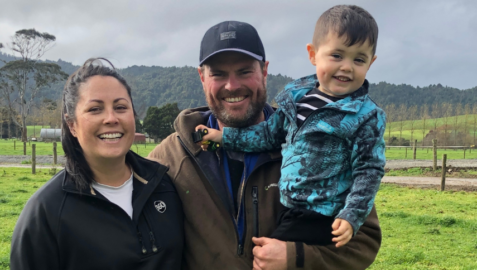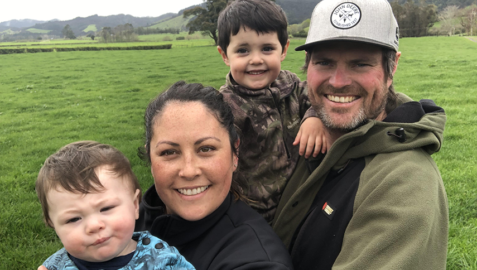
A Life in Wool
Module Overview
Shearing’s traditionally been all technique and tallies, but a new training programme is encouraging shearers to regard themselves as rural athletes, mentally and physically.
Luke Mullins hails from Taihape but is now based in Te Awamutu. He’s been shearing all his life and his passion for it remains undiminished. He and his wife recently purchased a shearing run in Otorohanga.
“I’ve been in the shed pretty much all my life. The thing I like about shearing is seeing everyone work hard, but still having a laugh and enjoying themselves. If you like being around people, it’s a great job.”
But there’s a competitive side to shearing – you get paid according to your tally. Luke likes that side of it too.
“I’ve always been a competitive person myself, so I’ve fed off that vibe. But I also enjoy watching people improve, especially guys who’ve gone from the wool press to the stand. You see people’s skills evolve over the years, which is cool.”
Training the next generation
Which brings us nicely to one of Luke’s current roles – training the next generation of shearers as part of WOMOLife, a $1.8 million pilot training programme to upskill 120 existing shearers and provide a training pathway for 150 new shearers.
WOMOlife has created an extensive library of online video content supported by practical, hands-on training days in the wool shed with accredited trainers like Luke.
The courses provide training in movement techniques designed to reduce the risk of injury while increasing performance and productivity. But there are other aspects to the training as well.
“It’s been a really cool thing to get off the ground,” says Luke. “The training is designed to be as broad as possible. So, as well as learning to shear, people will learn about body movement, nutrition, financial literacy and managing stress.”
“These things are important. For example, I was never great with money. I’d work hard during Main Shear and think ‘ok, let’s go and spend it’. Obviously, as you get older you realise you need to put something away for a rainy day. I’d really like to see people new to the industry being a bit more savvy with their money.”
The training also covers managing stress and the ‘top two inches’ says Luke.
It’s important to have coping mechanisms
“There is stress in every industry, so it’s important to have coping mechanisms, isn’t it? Obviously if you’re really feeling under the pump, it’s good to talk to someone, but it’s also good just to go and chill out and have five minutes to yourself each day with no distractions. A bit of mindfulness. Just relax and breath and realise you can’t control everything in the world.”
“I also find a walk at night can be a good way to just relax and unwind. Get off your device and find a bit of solitude and quiet. I find during the day if I have five minutes to myself, closing my eyes and chilling out it really helps manage stress and then in the evening my wife and I will discuss how the days gone. So, there’s a time for talking and also a time for a bit of self-reflection.”
Managing ‘the top paddock’ is more important to running a shearing business than people might think says Luke.
“Shearing is a bloody hard job at the end of the day. You put your body through a lot of stress. And there are plenty of things out of your control. We rely on farmers to present the sheep in the right way and provide good facilities. So, you need to develop some resilience and strategies for when things don’t work out as expected. The last thing you want is people in your crew flying off the handle. You need to work as a productive team.”
“A lot of what I’ve learnt about dealing with stress came with experience. When I was 28, I thought I was bulletproof, but looking back, you realise you’re not that mentally mature. That’s why it’s helpful to learn techniques and strategies that help you cope when unexpected things come into your day. You need to give yourself time to process things and communicate to resolve issues rather than nutting off.”
“One thing I’ve also learnt about managing people is that if you see someone struggling at work, go and ask them, ‘is there something else going on in your life?’. Do something to actually help rather than let them bottle things up, because that’s when it all goes pear-shaped.”
Luke says despite its pressures and physical demands, shearing remains a great career option.
“I take my kids to the woolshed and they go home, and my wife asks them ‘how was your day?’ and they say ‘Oh, it was mean! We were out on the farm, we were playing on the bales, we saw the farmer drench the sheep and Dad got me to shear the last side of a sheep.’ That’s what a life in shearing is – it’s full of stories. That’s why I always wanted to be a shearer and that’s why I still love it.”
Farmstrong is an award-winning rural wellbeing programme that helps farmers and farming families live well to farm well. To find out what works for you and ‘lock it in’, check out our farmer-to-farmer videos, stories and tips on www.farmstrong.co.nz.



